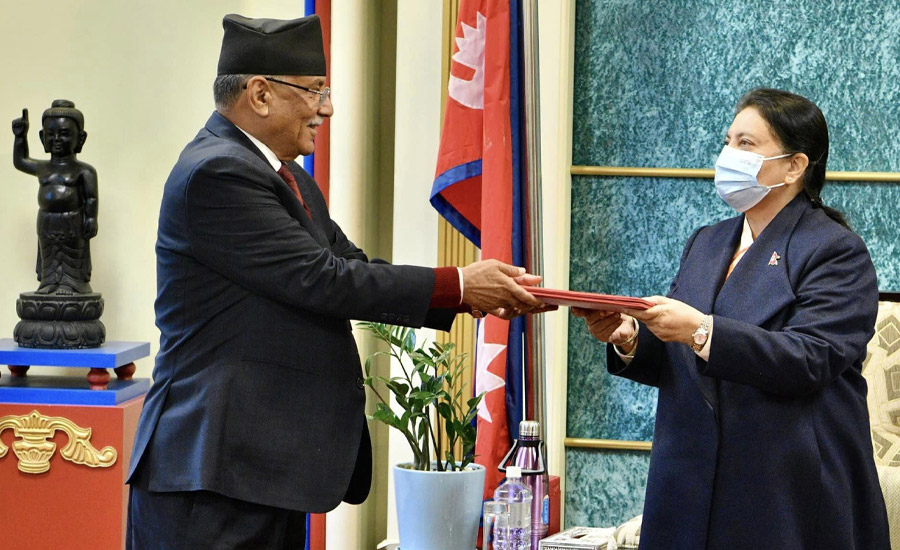
Chairman of CPN Maoist Center Pushpa Kamal Dahal 'Prachanda' has been appointed as Prime Minister. President Bidya Devi Bhandari appointed Pushpa Kamal Dahal as the Prime Minister on Sunday evening.
On Sunday, Prachanda submitted a claim to the Prime Minister with the support of his party CPN-Maoist, CPN-UML, Rashtriya Swatantra Party, Rashtriya Prajatantra Party, Janata Samajwadi Party, Janmat Party, and Rashtriya Unmukti Party.
After independent MPs Prabhu Shah, Kiran Kumar Shah, and Amresh Kumar Singh also supported him, Prachanda got the support of 169 MPs in the 275-member House of Representatives.
Since none of the parties got a majority in the election in the House of Representatives, President Bidya Devi Bhandari gave time till 5 pm on Sunday to form a coalition government according to Article 76 (2) of the Constitution.
About Puspa Kamal Dahal 'Prachanda'
Pushpa Kamal Dahal, also known as Prachanda, is a Nepalese politician who has served as the Prime Minister of Nepal on thrice occasions. He was first elected as Prime Minister in 2008, and then again in 2016. He is the Chairman of the CPN Maoist Center. He was a leader of the Maoist movement during the Nepalese Civil War and later served as the Chairman of the Communist Party of Nepal (Maoist Center). Prachanda has faced criticism for his role in the civil war and for his handling of various political issues, but he remains an influential figure in Nepalese politics.
Prachanda was born in 1952 AD in the Chitwan District of Nepal. He joined the communist movement in the 1970s and became a leader of the Nepal Communist Party (Maoist) in the 1990s. In 1996, he launched a guerrilla war against the Nepalese government, which became known as the Nepalese Civil War. After a decade of conflict, the war ended in 2006 with the signing of the Comprehensive Peace Accord, which paved the way for a new democratic government.
In 2008, Prachanda was elected as Prime Minister of Nepal, becoming the country's first Prime Minister to be elected through a popular vote. During his time in office, he implemented a number of significant reforms, including the abolition of the monarchy and the establishment of a federal democratic republic. However, his term was marked by political instability and he resigned as Prime Minister in 2009.
In 2016, Prachanda was elected as Prime Minister again, this time as the leader of the Nepal Communist Party. During his second term in office, he faced criticism for his handling of issues such as foreign policy and civil liberties. He resigned as Prime Minister in 2017 and was succeeded by Sher Bahadur Deuba. Prachanda remains an influential figure in Nepalese politics and continues to be active in the Nepal Communist Party. In 2022 he is appointed as the 44th Prime Minister of Nepal.





